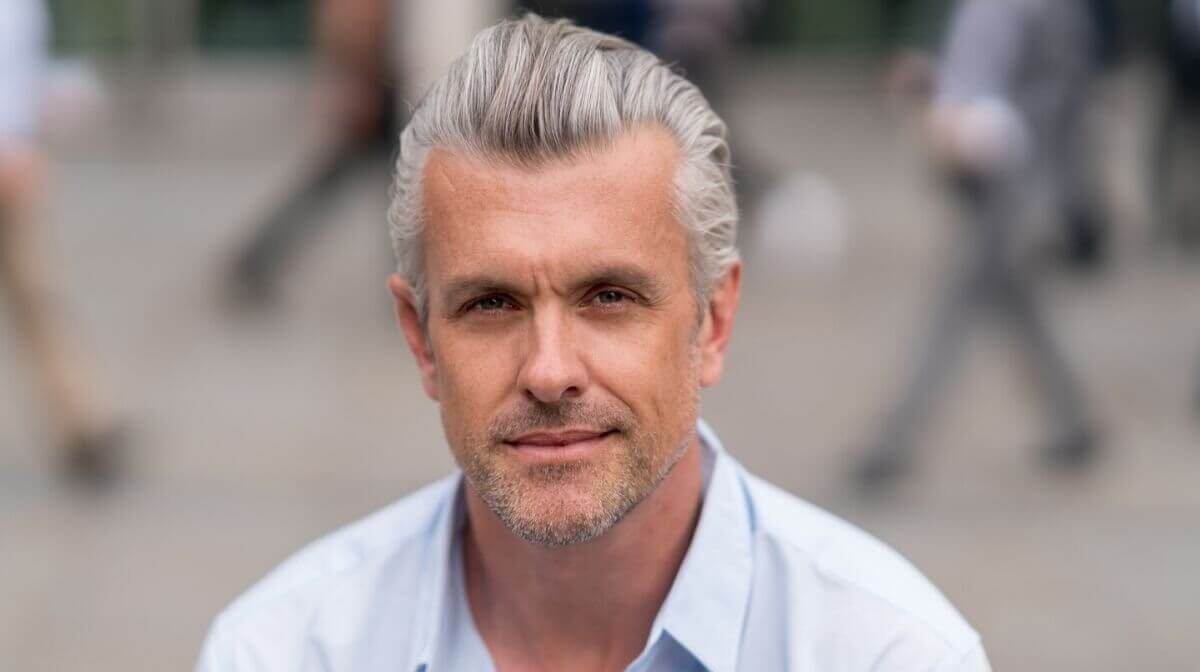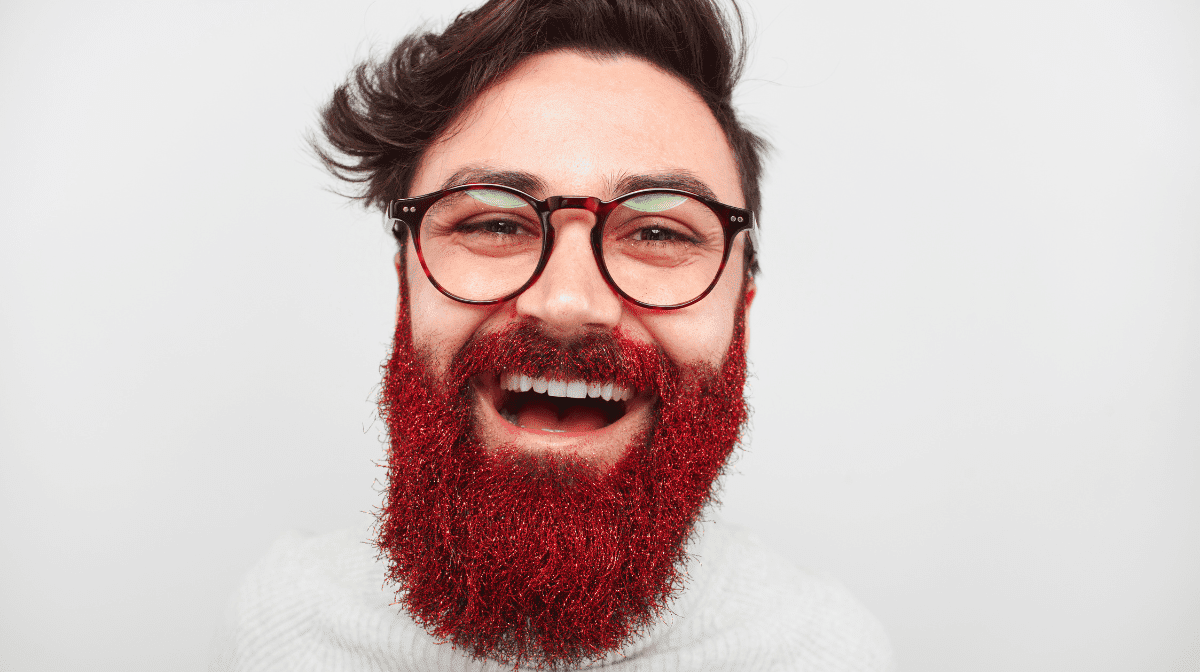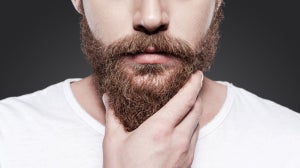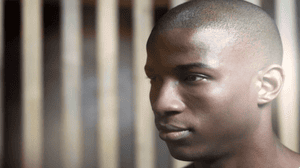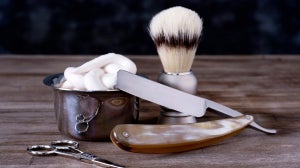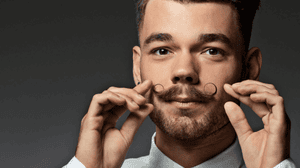
Going grey or white as you get older isn’t inevitable, but it is very common. Whether you’re sporting a salt-and-pepper hairdo or a white-as-snow beard, your once darker locks can soon seem like a distant memory.
Of course, there’s the option of dyeing your hair and your beard or you can choose to embrace the silver and make the grey-haired look work for you.
Why Does Hair Go Grey?
Dyeing hair white or grey has recently become pretty popular in salons, so it’s clear these colours aren’t disdained as in previous generations – but why do we get grey hair as we get older?
Melanocytes are the cells that produce pigment in the skin and hair. They become less efficient at producing melanin to influence this as we age, which is why hair can turn grey or white.
Dr Netter, a specialist in cosmetic dermatology, explains: “Hair and beard whitening is a physiological occurrence of an ageing hair follicle. There is no average age to first have white hair – it depends on genetics.”

Although the average age for men’s hair to turn grey is around 50, some guys will go grey or even white from the age of 20.
Why is Grey Hair Thicker?
A common realisation after developing grey hairs is that these new grey or white locks feel a lot thicker than before.
When your hair stops producing melanin as it did before, the new hair will naturally grow coarser and potentially more brittle. This will vary from person to person. Some silver foxes won’t notice any changes in the texture of their hair, whereas others may find their new grey hair harder to manage.
If the latter sounds like you, don’t pull your hair out over it! A simple trick to manage coarser hair is to use a shampoo that’s formulated for dry hair, which will usually contain argan oil or coconut oil. These ingredients contain fatty acids that are great for replenishing dry, coarse hair and keeping it smooth and healthy-looking.
Pulling Out Grey Hairs
There’s a myth about grey hairs – that you shouldn’t pull them out or they’ll grow back and bring their friends with them. There’s no evidence for this though – pulling out a grey or white hair will have no effect on its multiplication or pigmentation.
That being said, pulling out hair, regardless of the colour, can harm the follicles and potentially prevent new hairs from growing in that area in the future.
Dr Netter says: “Hair turning white is irreversible. Pulling out the hair weakens the hair root and could result in permanent hair loss in the long run. There’s no reason to treat your white hairs differently.”
Does Grey Hair Mean You Won’t Go Bald?
We’ll call this one out straight away – developing grey hair doesn’t prevent you from going bald, as disappointing as that might sound at first. The pace at which our hair thins or goes grey is wrapped up in genetics, as well as a range of lifestyle factors including stress, smoking, medical conditions, and even your diet.
Nearly all men will notice some form of hair loss during their lives and the same can be said for greyness. It’s a natural part of ageing that we should embrace - but that doesn’t mean you can’t change up your hairstyle to better accommodate your thinning locks. Hit the link to find the best hairstyles for a receding hairline.
Grey Head Hair vs Grey Facial Hair
There’s no definite rule for when your first grey hairs will appear on your chin; it could be before or after they show up on your head.
Of course, the texture of head hair and facial hair is different; this is because beard hair is exposed to stronger hormonal control – follicles need more testosterone to produce facial hair. This means beard hair can be thicker and coarser, which could lead to white hairs standing out a lot more.
What’s more, the growth cycle of hair ageing and shedding typically lasts for several years, but this cycle tends to last just a few months for a beard. This is why it can seem as though the hair in your beard is going grey or white much faster than the hair on your head.
This can be unsettling for some, leading to questions like, ‘how do I get rid of these grey beard hairs for good?’
The only way to remove grey beard hair permanently is through electrolysis: the process of removing individual strands of hair by destroying the follicle. While this hair removal method might work for some, there’s no guarantee that more grey hairs won’t grow in other places in your beard.
A simpler (and less painful) route to the beard of your dreams might be through dyeing those unwelcome grey hairs. Bear in mind that the different texture of your facial hair may mean the dye takes to it differently compared to the hair on your head.
Find out more about dyeing your beard:

